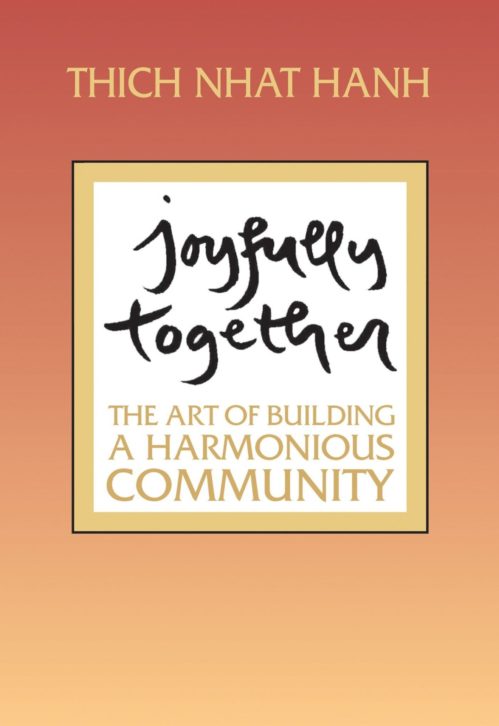
I heard these words of the Buddha one time when he was staying with the Bhagga people in Sumsumaragiri, in the Deer Park in the Bhesakala Grove. The Venerable Mahamoggallana addressed the bhikkhus, “My friends.”
“Yes, friend,” they replied to the Venerable Mahamoggallana.
The Venerable Mahamoggallana spoke as follows:
“My friends, suppose there is a bhikkhu who says to the other bhikkhus: ‘Please talk to me, Reverend Bhikkhus. I want you to offer me guidance.’ If he is difficult to talk to, endowed with qualities that make him difficult to deal with, impatient, intolerant, not good at accepting constructive criticism or the words of advice and instruction from friends in the practice, then those who practice the path of sublime conduct with him will think, ‘He is not one to be spoken to, he is not one to be instructed, he is not someone to have confidence in.’ What are the qualities that make someone difficult to approach?
“My friends, a bhikkhu who is attached to wrong desires and is controlled by wrong desires is difficult to approach and talk to.
“These are other reasons that make it difficult to approach and talk to him: a person praises himself and despises others; he is easily angered and mastered by his anger; because he is angry, he bears a grudge; because he is angry, he is bad-tempered; because he is angry, he speaks in a bad-tempered way; he accuses one who has corrected him; he disparages one who has corrected him; he corrects in turn one who has corrected him; he evades the criticism by asking another question; he changes the subject; he manifests ill-temper, anger, and sulkiness; he does not succeed in explaining his behavior when corrected; he is unmindful and ill-willed; he is jealous and greedy; he is hypocritical and deceitful; he is stubborn and arrogant; or he is worldly and clings to things that belong to this world and finds it difficult to let go. These, my friends, are the habit energies that make it difficult to approach and talk to him.
“My friends, suppose there is a bhikkhu who requests of other bhikkhus: ‘Please talk to me, Reverend Bhikkhus. I want you to offer me guidance.’ If he is easy to talk to, endowed with qualities that make him easy to deal with, patient, tolerant, open and able to accept constructive criticism or the words of advice and instruction from friends in the practice, then those who practice the path of sublime conduct with him will think, ‘He is someone we can talk to, someone we can instruct, someone we can have confidence in.’ What are the qualities that make someone easy to approach?
“My friends, a bhikkhu who is not caught in wrong desires and is not controlled by wrong desires is easy to approach and talk to. He does not praise himself and despise others; he is not easily angered or mastered by his anger; because he is not angry, he does not bear a grudge; because he is not angry, he is not bad-tempered; because he is not angry, he does not speak in a bad-tempered way; he does not accuse one who has corrected him; he does not disparage one who has corrected him; he does not correct in turn one who has corrected him; he does not evade the criticism by asking another question; he does not change the subject; he does not manifest ill-temper, anger, and sulkiness; he succeeds in explaining his behavior when corrected; he is not jealous and greedy; he is not hypocritical and deceitful; he is not stubborn and arrogant; he is not worldly nor does he cling to things that belong to this world and he does not find it difficult to let go. These, my friends, are the qualities that make it easy to approach and talk to him.
“My friends, one should infer one’s own state by considering the state of others in the following way: ‘That person has wrong desires and is controlled by his wrong desires; therefore, I do not find him easy to approach. If I had wrong desires and were controlled by those wrong desires, others would not find me easy to approach.’ When one sees this clearly, one should make the following determination: ‘May I not be attached to wrong desires or be controlled by those wrong desires.’
“This method of reflection needs to be practiced in other cases, such as praising oneself and despising others, being easily angered and mastered by anger, and so on.
“My friends, this is how a bhikkhu should reflect on himself: ‘At this moment, am I attached to wrong desires and controlled by wrong desires?’ If when a bhikkhu reflects in this way, he knows, ‘At this moment, I am attached to wrong desires and controlled by wrong desires,’ then he should practice diligently to put an end to these unwholesome mental formations. If, on the other hand, when he reflects, he knows, ‘At this moment, I am not attached to wrong desires and not controlled by wrong desires,’ then a bhikkhu should live with a feeling of happiness, and he should practice diligently to nourish and increase these wholesome mental formations.
“This method of reflection needs to be practiced in other cases, such as praising oneself and despising others, becoming easily angered and mastered by anger, and so on.
“If, my friends, when he reflects, a bhikkhu sees clearly that he has not yet given up all these unbeneficial qualities, then he should practice diligently to give them all up. If, when he reflects, a bhikkhu sees clearly that he has given up all these unwholesome mental formations, then he should live with a feeling of happiness, and he should practice diligently to nourish and increase these wholesome mental formations.
“It is like when a young person who is fond of adorning himself contemplates his face in the mirror or a bowl of clear water. If he sees dirt or a blemish on his face, he tries to clean it. If he does not see dirt or a blemish, he thinks to himself, ‘It is good, my face is clean.’
“So, my friends, if a bhikkhu reflects and sees that all these unwholesome mental formations have not yet been given up, then he practices diligently to give them all up. If he sees that he has given them all up, he feels happy about this and knows that he needs to practice diligently in order to nourish and increase these wholesome mental formations.”
The Venerable Mahamoggallana had spoken. The bhikkhus were delighted, had confidence in, and accepted their teacher’s words.
Translated by Thich Nhat Hanh from Anumāna Sutta, Majjhima Nikāya 15.



Share Your Reflections